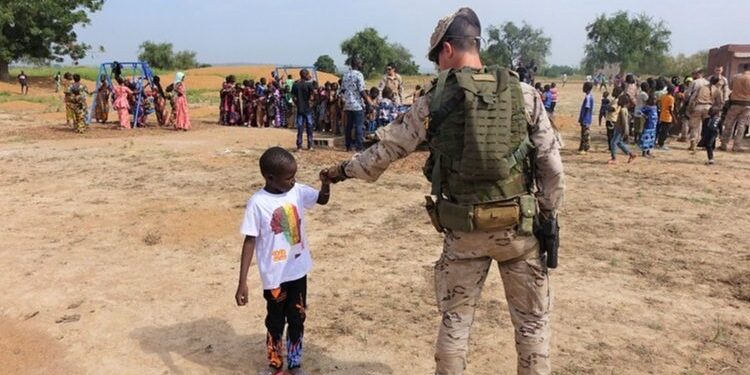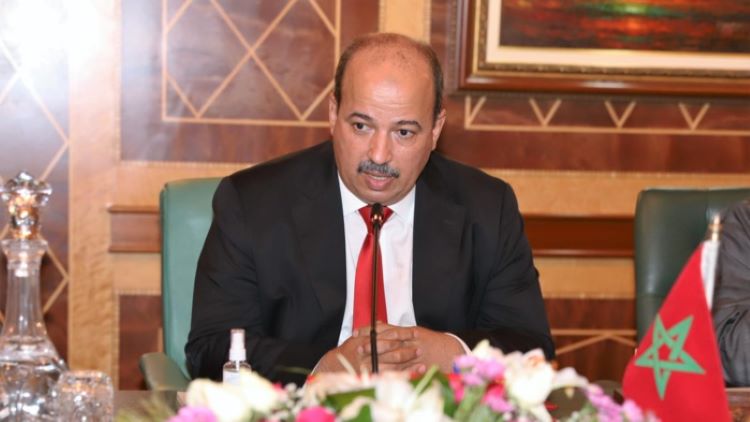Eduardo González
April 1 marked the tenth anniversary of Spain’s participation in the EU mission in Mali (EUTM-Mali), where it “provides the Malian Army with training and military advice to recover the country’s territorial integrity”, as the Ministry of Defense recalled yesterday on its Twitter account.
EUTM-Mali was created by the Council of the European Union on January 17, 2013 and launched on February 18 by EU foreign ministers. Under that first EU mandate, the first Spanish forces were deployed on April 1, 2013, shortly before the military training camp was launched in Koulikoró (south). Spanish participation, with a maximum of 50 military personnel, had been authorized on January 30 of that year by the Congress. The contingent was expanded to 110 military personnel on June 18, 2013 by the Defense Committee of the Chamber.
Subsequently, and already under the second mandate (May 2014-May 2016), Spain held the command of EUTM for the first time between October 2014 and July 2015, with Army Brigadier General Alfonso García-Vaquero leading the mission.
In May 2016, a third term of the mission began, also for two years. Within the framework of that third mandate, the Congress of Deputies authorized on January 24, 2018, at the request of the Government, the increase in the number of troops to a maximum of 292, barely a week before a Spaniard, General Enrique Millán, once again took command of the mission. With Spain at the helm of the EUTM, the fourth mandate was launched on May 14, 2018, under which support to the Sahel G5 was reinforced through training and advisory activities. General Millan handed over command to Germany in November 2018.
On April 17, 2020, one month before the end of EUTM-Mali’s fourth mandate, the Spanish military returned to Spain following the temporary halt of training activities as a precautionary measure against COVID-19. On January 12, 2021, Spain resumed command of EUTM-Mali with General Fernando Gracia, who took charge of the training mission during the first half of that year. It was the third time that Spain assumed command of this mission.
Renewal of EUTM in the midst of French withdrawal
In February 2022, France and other allied countries announced the withdrawal of their troops from Mali involved in the international missions Barkhane – for the fight against terrorism – and Takuba – formed by special units from different European countries – due to their disagreements with the military junta in Bamako and in protest against the presence in the country of the Russian mercenaries of the Wagner Group. In principle, these decisions did not directly affect EUTM-Mali but did affect two other missions in which Spain did not participate.
In this context, the EU foreign ministers decided, in March 2022, to give themselves “a little more time” before deciding on whether the conditions were met to remain on the ground and waiting for the military government of Mali to show definite signs of progress “in its democratic transition and what it expects from the mission”, as the Spanish minister, José Manuel Albares, declared at that time. Finally, after a strategic review process, the EU Council decided to extend the mandate of the European Union Training Mission in Mali until May 18, 2024.
Throughout this time, Spain has insisted that any decision on this mission must be taken by the EU as a whole and has warned that a hasty withdrawal from Mali could degenerate into “another Afghanistan”, in addition to leaving an empty space that could be occupied by other powers, such as China or Russia, in this case through the Wagner Group.
On December 16, 2022, Spain assumed command of the mission for the fourth time, in this case through Brigadier General Santiago Fernández Ortiz-Repiso. Spain has been, to date, the largest contributor of forces (24%), with around 500 military personnel, according to Ministry of Defense data. Spain currently contributes, with 334 military personnel, 75% of the personnel of the multinational mission. Most of the Spanish troops are located in Koulikoró and the rest in the headquarters in the capital, Bamako. Last January, the Spanish contingent was forced to reinforce security at the Koulikoró training center in response to several terrorist attacks perpetrated by Al Qaeda in this region.
The Minister of Defense, Margarita Robles, visited the Spanish contingent of EUTM-Mali in Bamako at the beginning of March, where she met with her Malian counterpart, Sadio Camara – before whom she defended Spain’s position in favor of NATO’s so-called “360 degree approach” – and held a meeting with General Fernandez Ortiz-Repiso and with the chief officers of each country participating in the mission to assist the Malian Army. Robles assured during her stay that without the existence of cooperation between the EU and Africa it will not be possible “to build a world in peace, without terrorism and against illegal immigration”.







